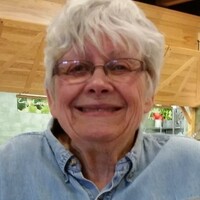Item
abstract
Donna McWhirter
“Donna McWhirter”. 2023, Sewanee: Black Lives Matter Oral History Project, accessed January 15, 2026,
- Title
- Donna McWhirter (Abstract)
- Interviewer
- Kaila Seger
- Date
- October 26, 2023
- Location of the Interview
- Over Zoom, Donna was in her house in Colorado Springs, Colorado. Kaila was in her dorm room in Sewanee, Tennessee.
- Length
- 1 hour, 3 minutes, 14 seconds
- Abstract
- Donna McWhirter was born in 1938 in Colorado Springs CO. She worked at many places throughout her life, starting as a preschool teacher and then moving on to conduct research for the Disciples of Christ and the Historical Society in Nashville. She also did photography and worked at the Belmont mansion in Nashville as well as the Colorado Springs Pioneer Museum. The interview starts with a discussion of Donna’s background. She details how she has moved around a decent bit during her life, starting in Colorado Springs, CO, and now having moved back there to retire. She describes the jobs that she has had over the years, discussing how she became involved with her church, conducting research for her church and becoming a minister. She then talks about her travels, discussing the trips abroad she has been on as a part of her church and church functions, recalling that she has been to Jamaica, Thailand, Indonesia, New Zealand, Australia, and England. She goes on to talk about where she found community growing up, that being within primarily her neighborhood, church, and school. The interview moves on to discuss Black Lives Matter, starting with her general assessment of the movement. She then discusses that she gets her news from primarily MSNBC and a youtube network called Midas. She discusses how she sees things as going backwards in terms of race relations, seeing hate within the government, toward African Americans, recalling that she remembers when Little Rock integrated schools and the violence that she saw. She talks about how the Black Lives Matter Movement hasn’t changed the way she interacts with people of color because she grew up in the same neighborhood with many people of color, but admits that the Black Lives Matter Movement might have given her more perspective and insight into others lives than before. She recounts how she came into contact with the Black Lives Matter Movement through TV and the news. She then states how she thinks that the Black Lives Matter Movement has had the biggest effect on younger generations, touching on how we are now able to see police brutality extremely easily with it being shown on the news. She discusses a few closing remarks, discussing how just by the name ‘Black Lives Matter’, she agrees with the movement in general. She moves on to talking about how discrimination is bad, drawing connections between gender discrimination and racial discrimination. She states that she believes that we are stronger and better off when working together, then going on to discuss how she realizes that she might not know all that much about Black Lives Matter, and might have a very superficial understanding of the movement. Her last major closing remark consists of discussing how you can’t blame people for what they haven’t been allowed to do or have. This interview is a part of the Black Lives Matter Oral History Project to document people’s thoughts and experiences with the Black Lives Matter Movement.
Part of Donna McWhirter

